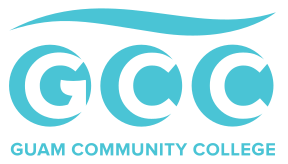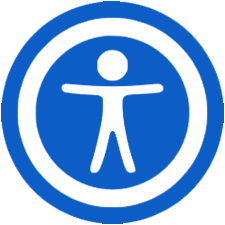Program Student Learning Outcomes follow each program description in the following pages. SLOs intentionally describe the 3-5 central goals that students will have attained by the end of the program. In essence, SLOs encapsulate the knowledge, skills, and attitudes that students are expected to learn from their respective programs. The focus is on what students can do with what they have learned and this outcome should be evaluated in some way. Primarily, three questions essentially frame the articulation of SLOs:
- What do students know? (cognitive domain)
- What do they think and value? (affective domain)
- What can they do? (behavioral domain)
In this catalog, program SLOs describe the broadest goals for the program, particularly those that require higher-level thinking. They, therefore, require students to synthesize many discrete skills or areas of content. SLOs also ask students to produce artifacts such as term papers, projects, portfolios, demonstrations, exams or other student work. Most importantly, SLOs also need to be evaluated or assessed in some way so that accountability and improvement remain the hallmarks of a good program. A separate SLO Booklet is published and updated regularly to guide faculty in helping students achieve articulated course outcomes.
The College, in close collaboration with faculty and members of Advisory committees, continues to embark on an ongoing institutional effort to revise and update all its curriculum documents so that they remain responsive to industry and community needs.
SLO Mapping - ILO, PROGRAM, AND COURSE LEVELS
SLOs also align with collective program and institution level expectations for student learning translated into the curriculum and co-curriculum. Most importantly, these SLOs map to the curriculum, co-curriculum and other educational practices that provide students multiple opportunities for meaningful learning. SLO maps developed for three (3) different levels – ILOs, program, and course -- reflect the desired goals of learning experiences that the College continues to intentionally develop, structure, deliver, and evaluate on an ongoing basis.
GENERAL EDUCATION | ||
Scope 1: Skills for and Application of Lifelong Learning | ||
Freshman Composition (Choose one course from the following to meet the required 3-4 credits) | ||
Course # | Course Name | Credits |
EN110 | Freshman Composition | 3 |
EN110A | Freshman Composition with Instructional Lab | 4 |
EN111 | Writing for Research | 3 |
Mathematics (Choose one course from the following to meet the required 3-4 credits)* | ||
Course # | Course Name | Credits |
MA110A | Finite Mathematics | 3 |
MA115 | Fundamentals of College Algebra | 3 |
MA161A | College Algebra & Trigonometry I | 3 |
*Any college level math will be considered for the completion of this category | ||
Literacy for Life Skills (Choose one course from the following to meet the required 3 credits) | ||
Course # | Course Name | Credits |
CO110 | Critical Thinking for Civic Engagement | 3 |
CS151 | Windows Applications | |
CS152 | Macintosh Applications | |
Humanities & Fine Arts (Choose one course from the following to meet the required 3-4 credits)* | ||
Course # | Course Name | Credits |
ASL100 | American Sign Language I | 4 |
CH110 | CHamoru I | 4 |
ED265 | Culture and Education in Guam | 3 |
CO125 | Introduction to Human Communication and Speech | 3 |
EN210 | Introduction to Literature | 3 |
HI121 | History of World Civilization I | 3 |
HI122 | History of World Civilization II | 3 |
HI176 | Guam History | 3 |
HM110 | Introduction to Community Services | 3 |
HM201 | Social Welfare & Development: Global Challenges | 3 |
HU120 | Pacific Cultures | 3 |
HU220 | Guam Cultures and Legends | 3 |
JA110 | Japanese I | 4 |
KE110 | Korean I | 4 |
MU110 | Chorale I | 3 |
PI101 | Introduction to Philosophy | 3 |
TH101 | Introduction to Theatre | 3 |
VC101 | Introduction to Visual Communications | 3 |
*Any foreign language, humanities, or fine arts course will be considered for the completion of this category | ||
Scope 2: Broad Comprehension of the Development of Knowledge, Practice and Interpretation Natural & Physical Sciences (Choose one course and the corresponding lab from the following to meet the required 4 credits)** | ||
Course # | Course Name | Credits |
SI101/101L | Introduction to Chemistry: Theory (3) & Introduction to Chemistry Laboratory (1) | 4 |
SI103/103L | Introduction to Marine Biology: Theory (3) & Introduction to Marine Biology Laboratory (1) | |
SI105/105L | Introduction to Physical Geology (3) & Introduction to Physical Geology Laboratory (1) | |
SI110/110L | Environmental Biology: Theory (3) & Environmental Biology: Laboratory (1) | |
SI141 | Applied Physics I | |
SI150/150L | Introduction to Microbiology: Theory (3) & Introduction to Microbiology: Laboratory (1) | |
SI131/131L | Human Anatomy & Physiology I: Theory (3) & Human Anatomy & Physiology I: Laboratory (1) | |
SI132/132L | Human Anatomy & Physiology II: Theory (3) & Human Anatomy & Physiology II: Laboratory (1) | |
**The exception to this would be SI141 which does not include a laboratory requirement | ||
Scope 3: Preparation for and Acceptance of Responsible Participation in Civil Society | ||
Social & Behavioral Sciences (Choose one course from the following to meet the required 3 credits) | ||
Course # | Course Name | Credits |
EC110 | Principles of Economics | 3 |
PS140 | American Government | 3 |
PY100 | Personal Adjustment | 3 |
PY120 | General Psychology | 3 |
PY125 | Interpersonal Relations | 3 |
SO130 | Introduction to Sociology | 3 |
CJ100 | Introduction to Criminal Justice | 3 |
WG101 | Introduction to Women and Gender Studies | 3 |
*Any social and behavioral science course will be considered for the completion of this category | ||
Minimum General Education Requirements | 19 | |


